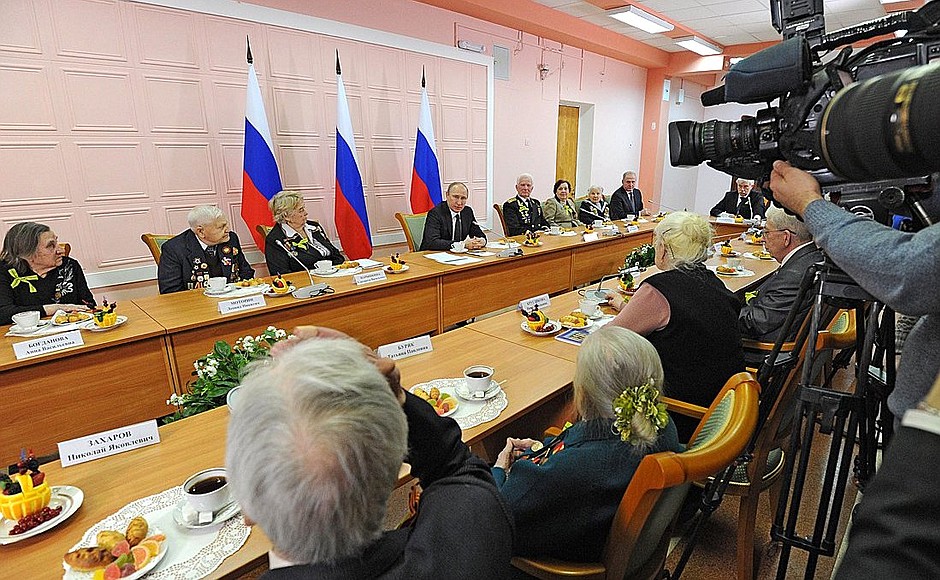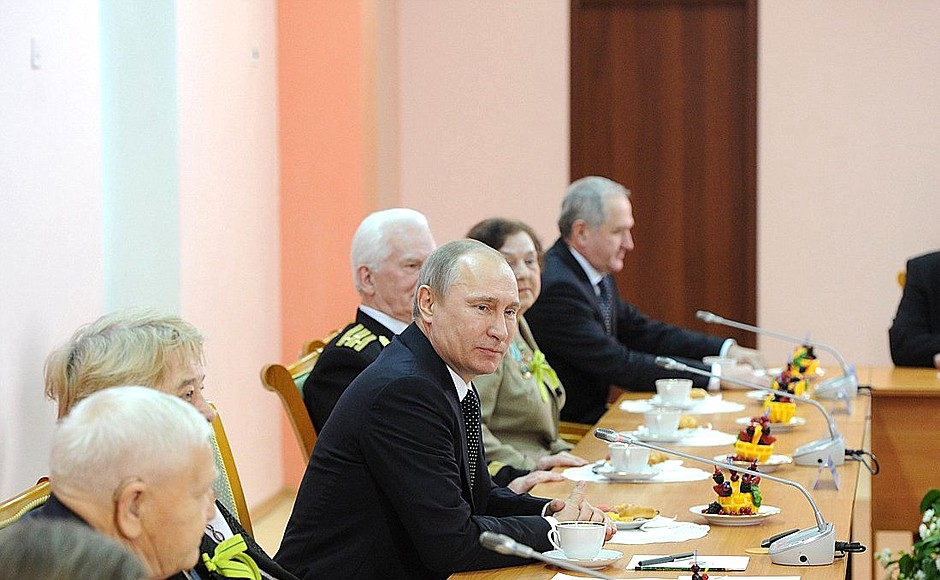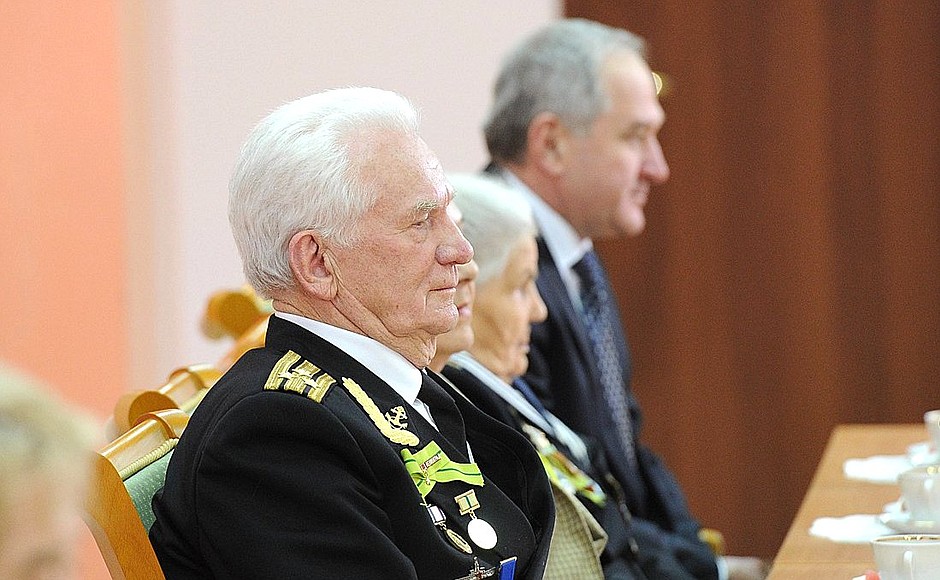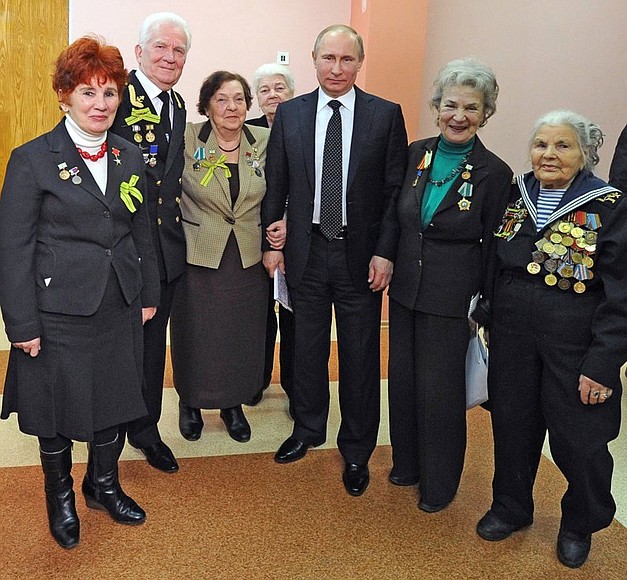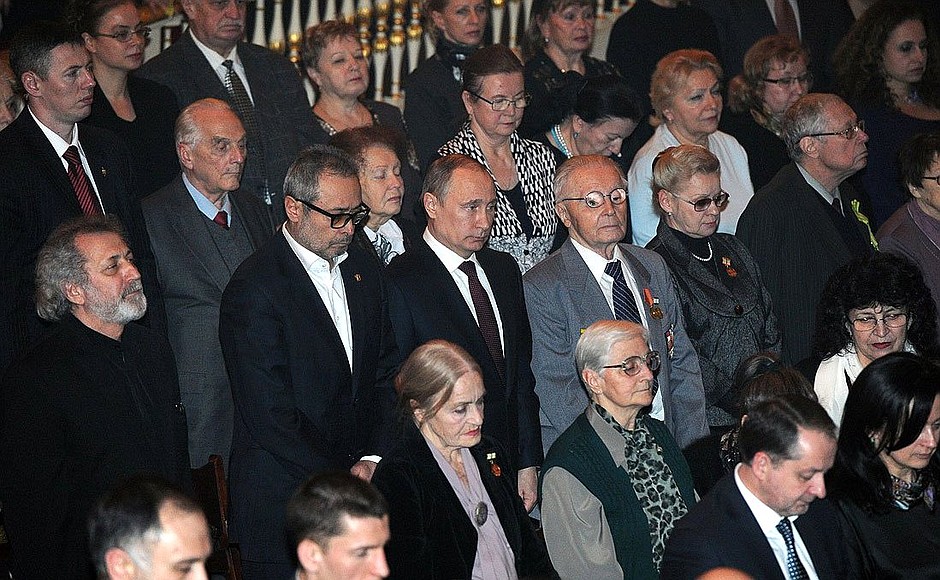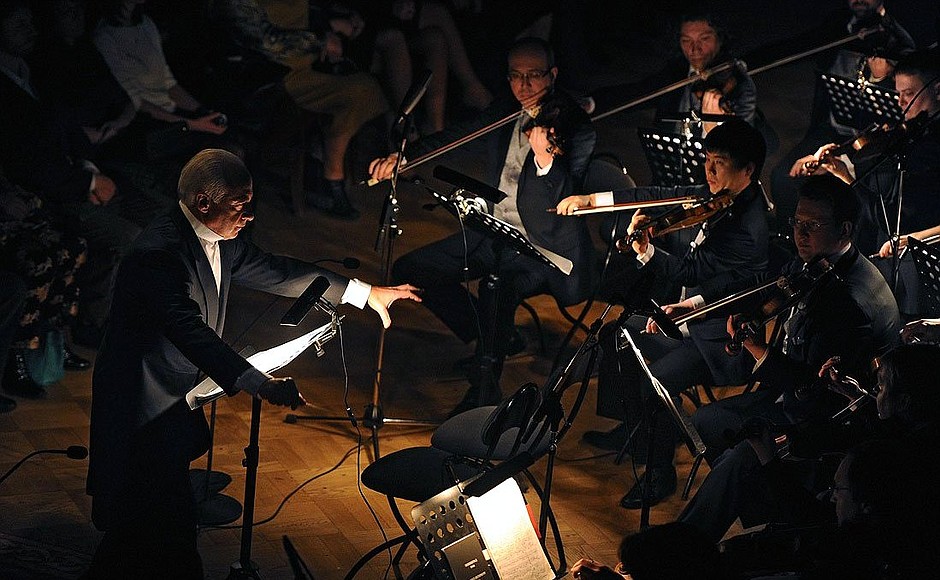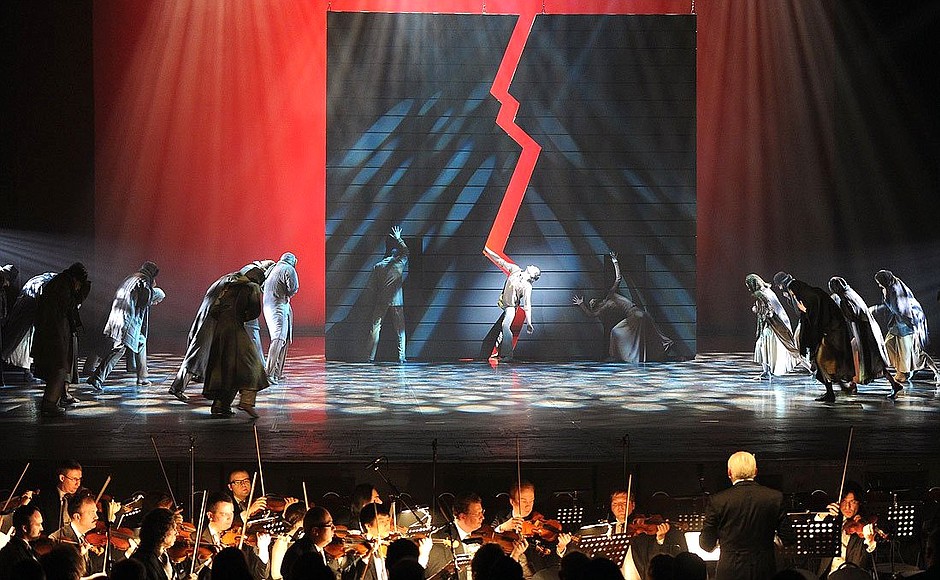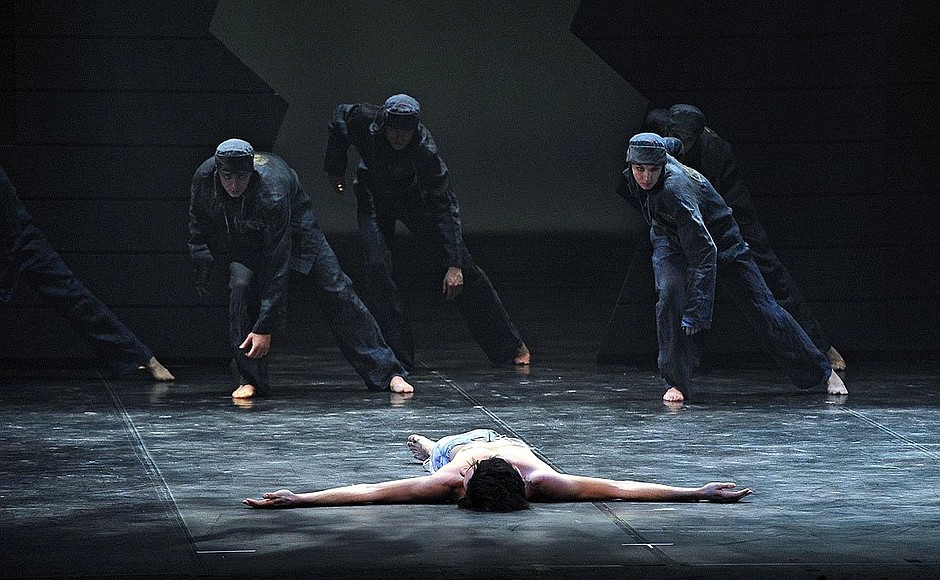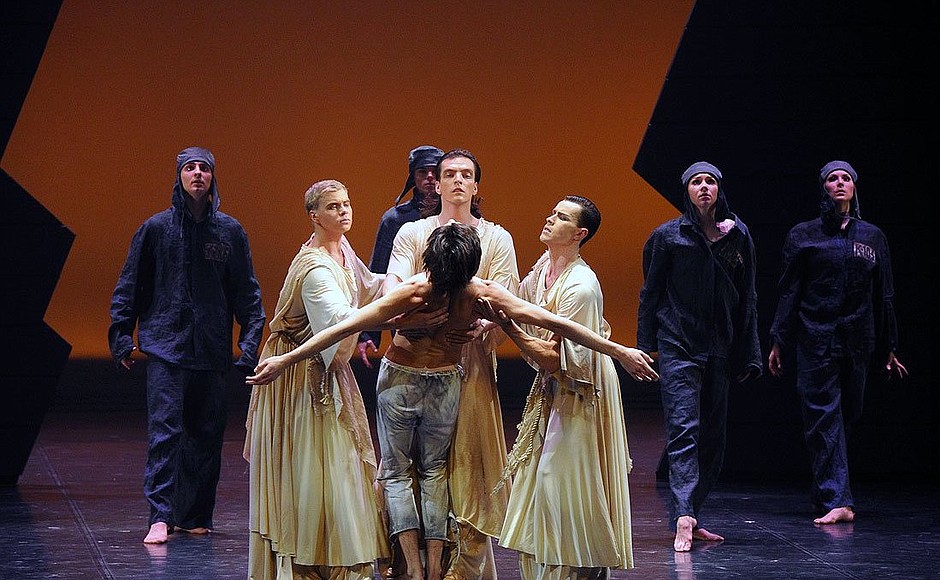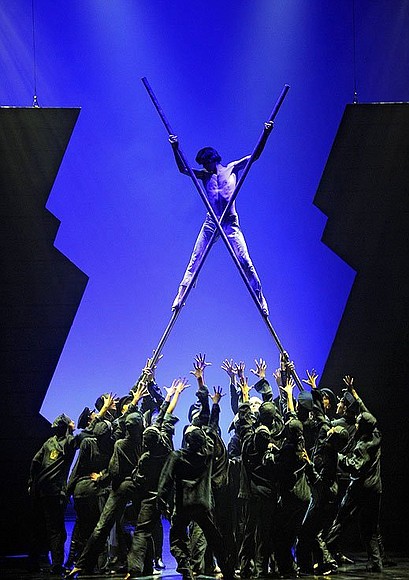The President laid a wreath at the Motherland monument at the Piskarevskoye Memorial Cemetery, where many of the blockage victims are buried, and placed flowers at the Border Stone monument at the Nevsky Pyatachok Memorial Complex. Mr Putin also honoured the memory of his brother, who died as a child during the blockade and is buried at Piskarevskoye Cemetery.
The President visited an exhibition displaying the first ever 3D panorama of a Great Patriotic War battle, Proryv, [The Breakthrough]. The work, which was created at the initiative of search groups, is on display at the Breaking Through the Siege of Leningrad Museum in the city of Kirovsk in Leningrad Region.
Afterwards, Vladimir Putin wrote in the distinguished visitors’ book: “A very truthful depiction and a talented work. This is great! Thank you all very much. Congratulations!”
Mr Putin also met with Great Patriotic War veterans who took part in the battle for Leningrad and with people who lived through the blockade.
In the evening, the President attended a performance of the Requiem ballet, dedicated to the city's liberation, at the Alexandrinsky Theatre. Artists of the St Petersburg State Academic Ballet Theatre of Boris Eifman presented the Requiem together with the State Chamber Orchestra Moscow Virtuosi and Academic Grand Choir The Masters of Choral Singing.
Russia marks the Day of Military Glory – Day of the Full Liberation of Leningrad from the Nazi Blockade on January 27. The siege of Leningrad, when the Nazi forces blockaded the city during the Great Patriotic War, lasted from September 8, 1941 until January 27, 1944.
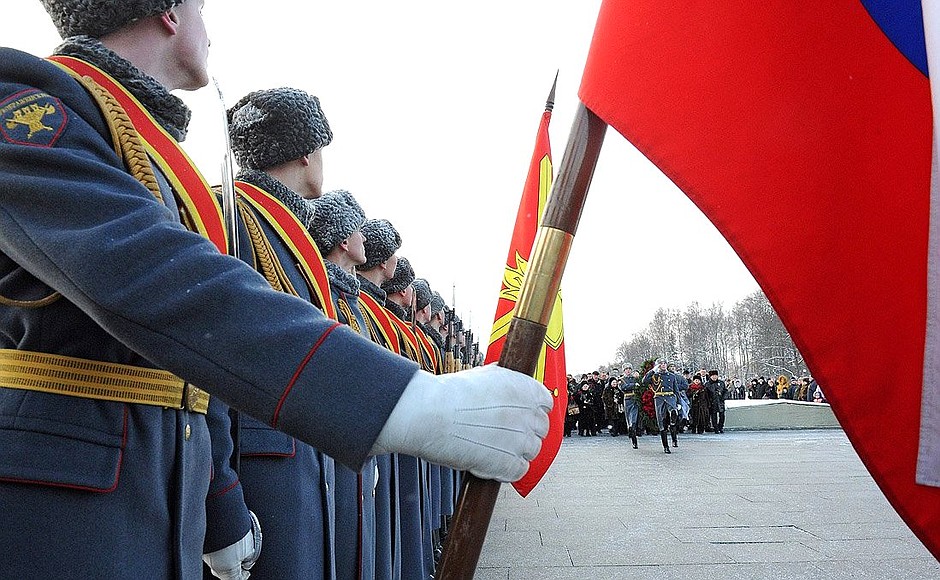
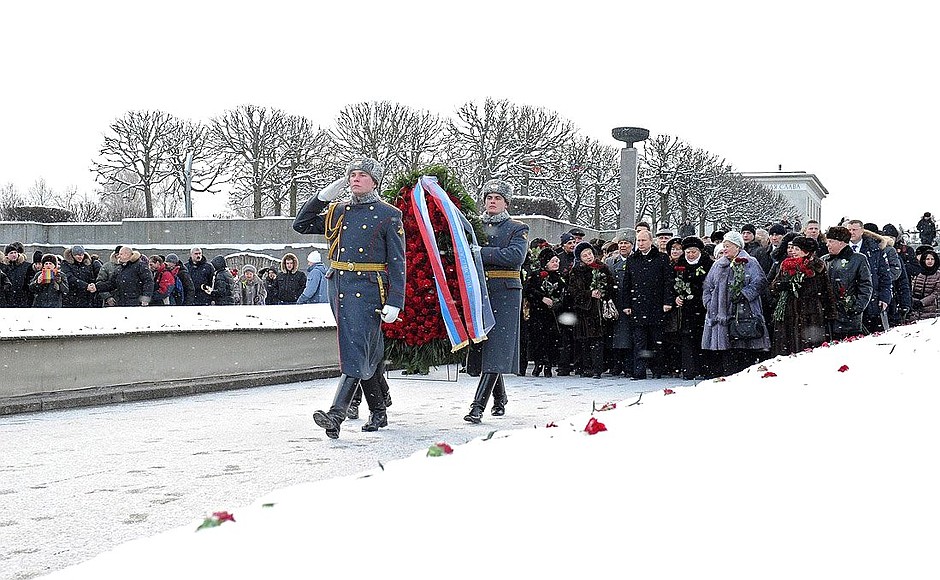
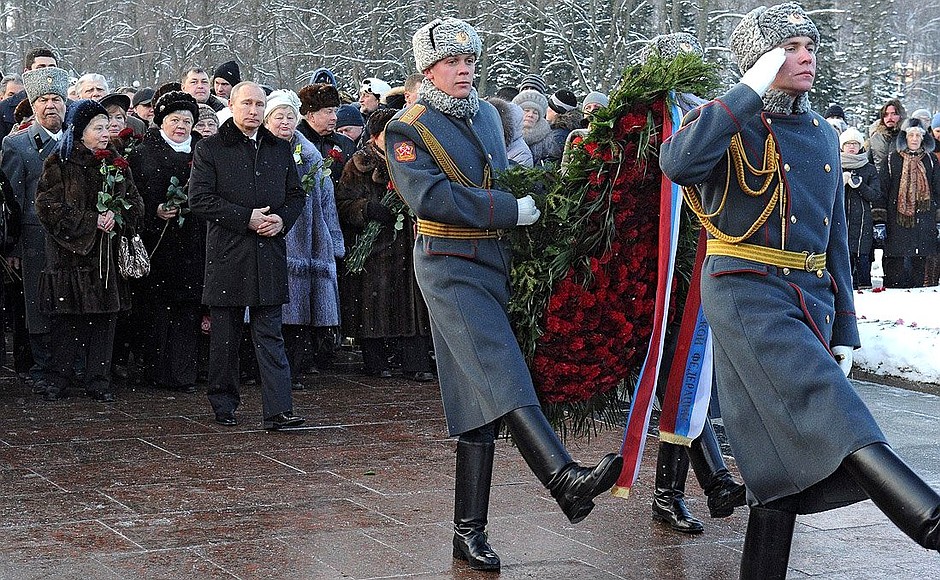
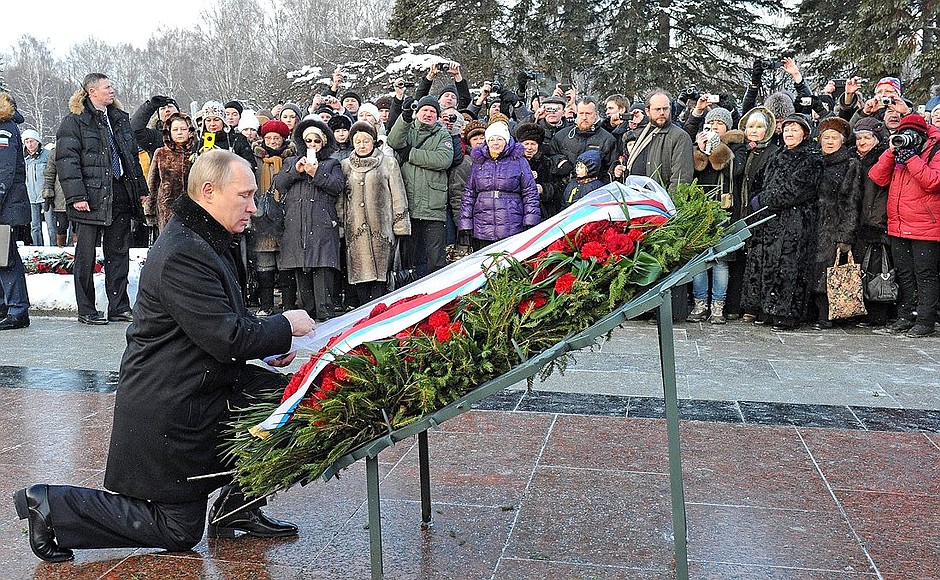
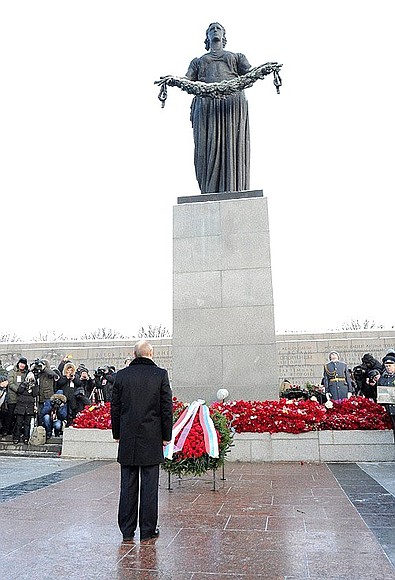
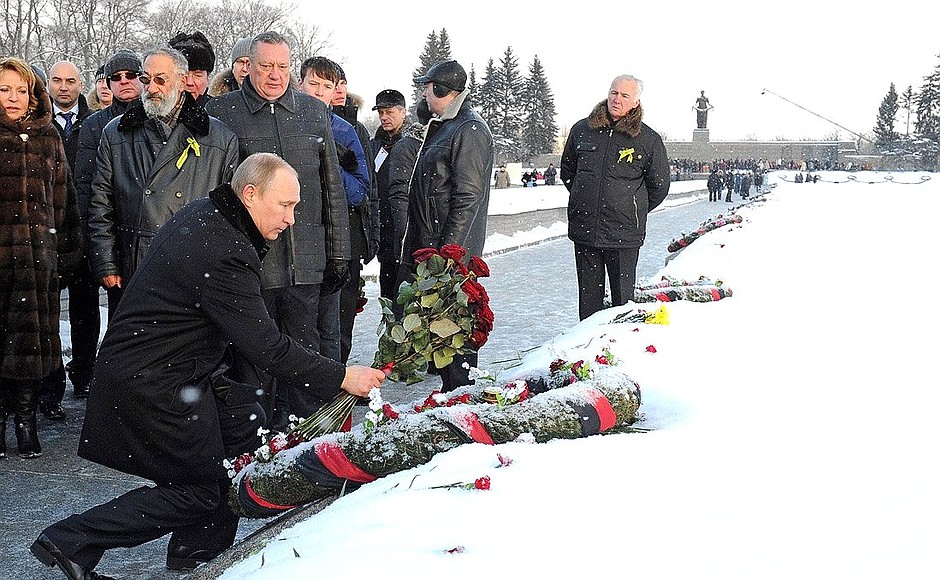
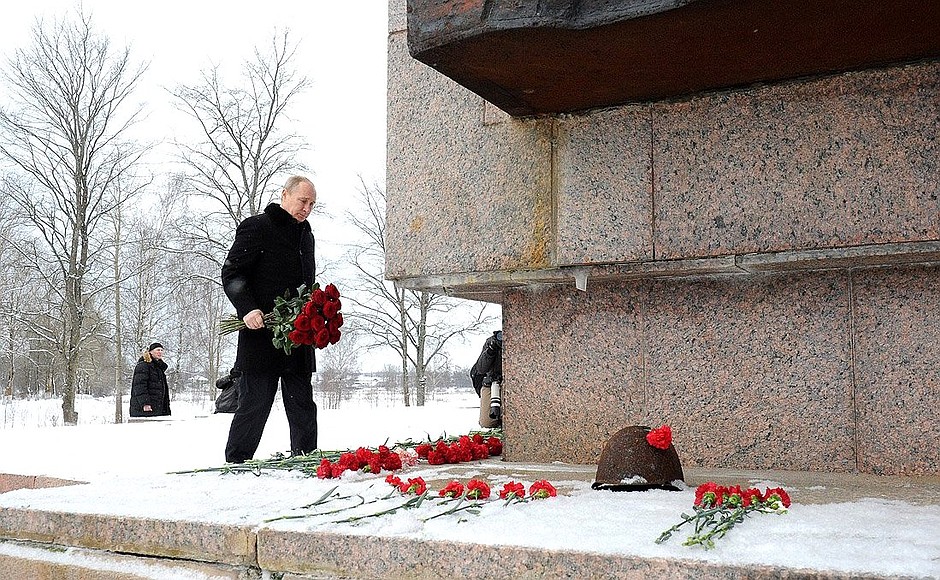
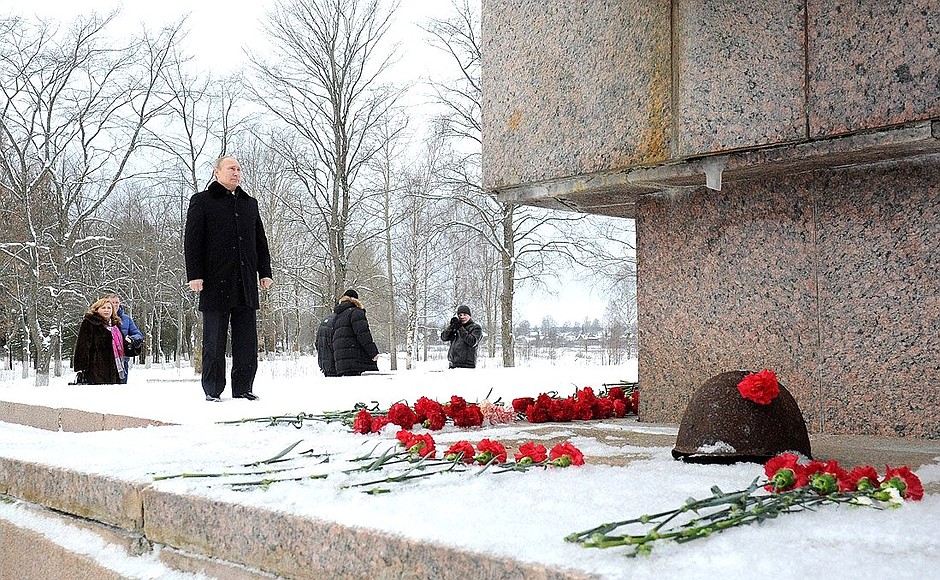
![Visiting an exhibition of a 3D panorama depiction of a Great Patriotic Battle, Proryv, [The Breakthrough] at the Breaking Through the Siege of Leningrad Museum Complex. With Dmitry Poshtarenko, exhibition author and leader of the Shlisselburg search group.](http://static.kremlin.ru/media/events/photos/big/5ui62DK7TbM1izNTDySDB9nC6S0xu7RW.jpeg)
![Visiting an exhibition of a 3D panorama depiction of a Great Patriotic Battle, Proryv, [The Breakthrough] at the Breaking Through the Siege of Leningrad Museum Complex.](http://static.kremlin.ru/media/events/photos/big/hdMSdOQ03Bp6alYQVHPc8iEmgusmR8yo.jpeg)
![Visiting an exhibition of a 3D panorama depiction of a Great Patriotic Battle, Proryv, [The Breakthrough] at the Breaking Through the Siege of Leningrad Museum Complex.](http://static.kremlin.ru/media/events/photos/big/pl2iPwovjACZKxyQnEH4GEJkiUoqAIcu.jpeg)
